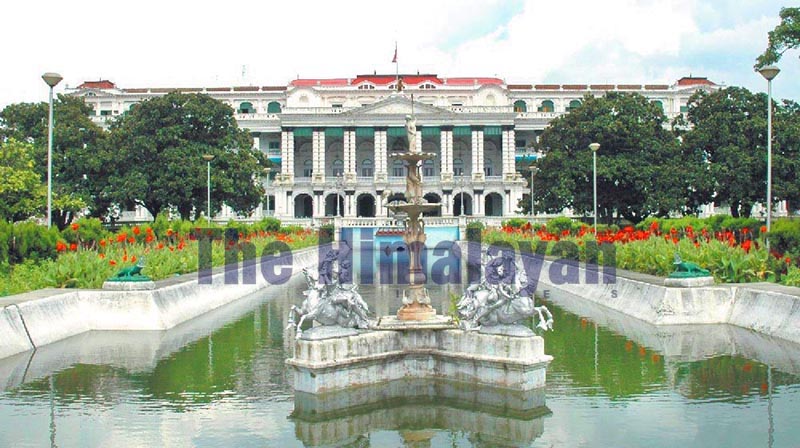People’s inclusion in lawmaking a challenge
Kathmandu, September 21
Legislative bodies of the three tiers of government need to overcome multiple challenges to make their legislation process participatory and transparent.
Right to information activists say ensuring people’s access to the Parliament and parliamentary panels, free and adequate dissemination of information on new bills, budgetary and other policies were needed to fix the shortcomings in the legislative process in all tiers of government.
Executive Director of Freedom Forum Taranath Dahal said easy access of the public, civil society members and media professionals to the Parliament and parliamentary bodies was key to ensuring smooth functioning of representative democracy.
“Commoners and civil society members do not have opportunity to take part in the lawmaking process because they do not have easy access to Singha Durbar where the Parliament Secretariat and parliamentary panels are located,” Dahal said, adding that until the public and civil society had easy access to the legislation process at all three levels of government — federal, provincial and local — the lawmaking process would not be fair and balanced. When people lack access to the Parliament and parliamentary panels, those who want to lobby lawmakers on particular bills are deprived of this opportunity, he argued.
In democracy, people should have the chance to take part in the legislative process to enable them to give feedback. They should be well informed about the government’s policies and new bills. If they do not have easy access to information at Singha Durbar or other government bodies, how can the public exercise their rights?” Dahal asked, adding that the public should not be expected to give their decision only during elections after five years.
One reason why people took to the streets recently against the Guthi (Trust) Bill was that the government did not provide opportunity to the public to give feedback during the process of drafting the bill.
Dahal said city councils and municipal councils of local levels that functioned as local legislatures did not allow the public, media or civil society members access to their meetings.
“Proceedings and discussions at the local legislatures are opaque. How can the public benefit if legislations are made by such bodies?” Dahal wondered.
Right to Information activist Suraj Bista said almost all the bills were registered as government bills in the federal Parliament, but it was high time the Parliament encouraged lawmakers to register private member bills. “Private bills are good because they fully reflect public views on particular issues,” he added.
He said the Ministry of Federal Affairs and General Administration had dispatched model laws to provincial assemblies. This implied that provincial governments lacked ability to draft bills. “The federal government has capacity to draft bills, but has failed to ensure public participation in the legislation process, whereas provincial and local governments lack capacity to draft bills,” Bista added.
Right to Information activist Sharada Bhusal said people’s participation in the legislation process in the three tiers of government was zero. “Local levels often hire lawyers to draft new laws. This shows how much the legislative process is lacking in local governments,” she said, adding that government bodies could be made accountable only when transparency was ensured.






